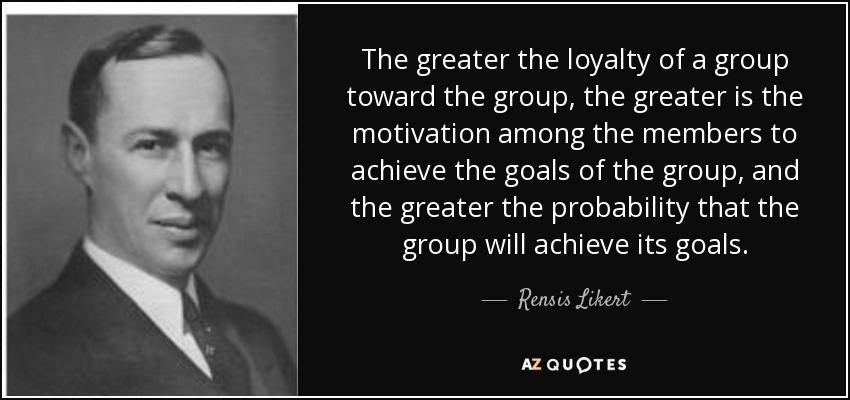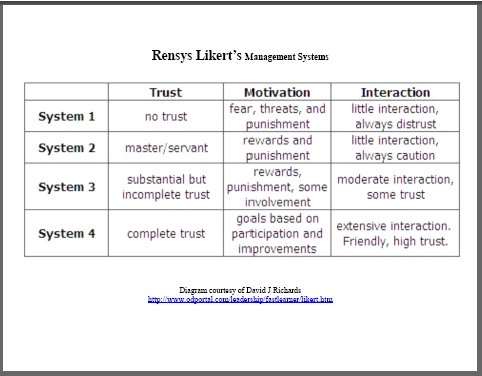|
Rensis LikertPeople Before Process
Employee Centred Supervision More Productive Than Job Centred SupervisionThe organisational psychologist (1903–1981) Rensis Likert is best known for his research on management styles. As a founder of the University of Michigan's Institute for Social Research he focused particular attention to research on organizations. He expanded on the Michigan leadership studies with extensive research over 30 years into what differentiates effective managers from ineffective managers. Managers in over 200 organisations completed questionnaires, and Likert and his team analysed the performance characteristics of the organisations using thefollowing variables as a framework:
- Leadership processes
The questionnaire was completed by employees from different managerial positions and levels of seniority in the organisations.
Likert New Patterns of Management [1961] Likert defined two styles of managers: (1) Job centered managers - who were found to be the least productive. (2) Employee centred managers - who were found to be the most effective.
Rensis Likert's Management Systems
Likert identified 4 main styles of management. Hardly surprisingly, System 4 is regarded as the optimum solution!
System 1 - Exploitative Authoritative This is the classic top-down management style where decision making is vested in the few at the top of the hierarchy. This style shows zero trust and confidence in subordinates and is based on coercion and threats. Decisions are imposed and there is no room for feedback or discussion. System 2 - Benevolent Authoritative This style is still centralised command and control but conducted with a softer tone. The best metaphor for this style is the master-servant relationship. Management exercise their authority with more trust than in system one but it essentially a condescending confidence and trust in subordinates based on the "master"/boss "knows best". There is still no scope for discussion with management and this system is reward based and does not engender team-work. System 3 - Consultative In this system responsibility is dispersed more widely throughout the hierarchy. The managers exercise more but not complete confidence in their subordinates. There is a degree of discussion between the management and their staff, ánd this happens in a context of teamwork, and with higher levels of communication both up and down the line and also amongst employees. People are motivated by based rewards and participation. System 4 - Participative This is the most progressive of the 4 systems with responsibility spread throughout the organisation and at all levels. Management have a high level of confidence in their staff. This system is typified with high levels of communication, participation and teamwork.
Return from Rensis Likert back to Define leadership
Managerial Grid - People or production - getting the balance right
Home Page
|






